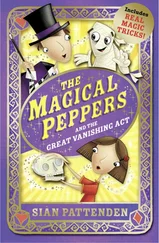Andrew Lang - Shakespeare, Bacon, and the Great Unknown
Здесь есть возможность читать онлайн «Andrew Lang - Shakespeare, Bacon, and the Great Unknown» — ознакомительный отрывок электронной книги совершенно бесплатно, а после прочтения отрывка купить полную версию. В некоторых случаях можно слушать аудио, скачать через торрент в формате fb2 и присутствует краткое содержание. Жанр: foreign_antique, foreign_prose, на английском языке. Описание произведения, (предисловие) а так же отзывы посетителей доступны на портале библиотеки ЛибКат.
- Название:Shakespeare, Bacon, and the Great Unknown
- Автор:
- Жанр:
- Год:неизвестен
- ISBN:нет данных
- Рейтинг книги:4 / 5. Голосов: 1
-
Избранное:Добавить в избранное
- Отзывы:
-
Ваша оценка:
- 80
- 1
- 2
- 3
- 4
- 5
Shakespeare, Bacon, and the Great Unknown: краткое содержание, описание и аннотация
Предлагаем к чтению аннотацию, описание, краткое содержание или предисловие (зависит от того, что написал сам автор книги «Shakespeare, Bacon, and the Great Unknown»). Если вы не нашли необходимую информацию о книге — напишите в комментариях, мы постараемся отыскать её.
Shakespeare, Bacon, and the Great Unknown — читать онлайн ознакомительный отрывок
Ниже представлен текст книги, разбитый по страницам. Система сохранения места последней прочитанной страницы, позволяет с удобством читать онлайн бесплатно книгу «Shakespeare, Bacon, and the Great Unknown», без необходимости каждый раз заново искать на чём Вы остановились. Поставьте закладку, и сможете в любой момент перейти на страницу, на которой закончили чтение.
Интервал:
Закладка:
Does any contemporary literary allusion to Shakespeare call him “ learned ”? He is “sweet,” “honey-tongued,” “mellifluous,” and so forth, but I ask for any contemporary who flattered him with the compliment of “learned.” What Ben Jonson thought of his learning (but Ben’s standard was very high), what Milton and Fuller, boys of eight when he died, thought of his learning, we know. They thought him “Fancy’s child” (Milton) and with no claims to scholarship (Fuller), with “small Latin and less Greek” (Jonson). They speak of Shakespeare the author and actor; not yet had any man divided the persons.
Elizabethan and Jacobean scholarly poets were widely read in the classics. They were not usually, however, scholars in the same sense as our modern scholarly poets and men of letters; such as Mr. Swinburne among the dead, and Mr. Mackail and Sir Gilbert Murray – if I may be pardoned for mentioning contemporary names. But Elizabethan scholarly poets, and Milton, never regarded Shakespeare as learned. Perhaps few modern men of letters who are scholars differ from them. The opinion of Mr. Collins is to be discussed presently, but even he thought Shakespeare’s scholarship “inexact,” as we shall see.
I conceive that Shakspere “knew Latin pretty well,” and, on Ben Jonson’s evidence, he knew “less Greek.” That he knew any Greek is surprising. Apparently he did, to judge from Ben’s words. My attitude must, to the Baconians, seem frivolous, vexatious, and evasive. I cannot pretend to know what was Shakspere’s precise amount of proficiency in Latin when he was writing the plays. That between his own knowledge, and construes given to him, he might easily get at the meaning of all the Latin, not yet translated, which he certainly knew, I believe.
Mr. Greenwood says “the amount of reading which the lad Shakspere must have done, and assimilated, during his brief sojourn at the Free School is positively amazing.” 52 52 The Shakespeare Problem Restated , p. 96.
But I have shown how an imaginative boy, with little or no access to English poetry and romances, might continue to read Latin “for human pleasure” after he left school. As a professional writer, in a London where Latinists were as common as now they are rare in literary society, he might read more, and be helped in his reading. Any clever man might do as much, not to speak of a man of genius. “And yet, alas, there is no record or tradition of all this prodigious industry… ” I am not speaking of “prodigious industry,” and of that – at school. In a region so non-literary as, by his account, was Stratford, Mr. Greenwood ought not to expect traditions of Will’s early reading (even if he studied much more deeply than I have supposed) to exist, from fifty to seventy years after Will was dead, in the memories of the sons and grandsons of country people who cared for none of these things. The thing is not reasonable. 53 53 See chapter X, The Traditional Shakespeare .
Let me take one example 54 54 The Shakespeare Problem Restated , pp. 94–96.
of what Mr. E. A. Sonnenschein is quoted as saying (somewhere) about Shakespeare’s debt to Seneca’s then untranslated paper De Clementia (1, 3, 3; I, 7, 2; I, 6, I). It inspires Portia’s speech about Mercy. Here I give a version of the Latin.
“Clemency becometh, of all men, none more than the King or chief magistrate ( principem ).. No one can think of anything more becoming to a ruler than clemency.. which will be confessed the fairer and more goodly in proportion as it is exhibited in the higher office.. But if the placable and just gods punish not instantly with their thunderbolts the sins of the powerful, how much more just it is that a man set over men should gently exercise his power. What? Holds not he the place nearest to the gods, who, bearing himself like the gods, is kind, and generous, and uses his power for the better?.. Think.. what a lone desert and waste Rome would be, were nothing left, and none, save such as a severe judge would absolve.”
The last sentence is fitted with this parallel in Portia’s speech:
“Consider this
That in the course of Justice none of us
Should see salvation.”
Here, at least, Protestant theology, not Seneca, inspires Portia’s eloquence.
Now take Portia:
“The quality of Mercy is not strain’d;
It droppeth as the gentle rain from heaven
Upon the place beneath: it is twice blessed;
It blesseth him that gives and him that takes;”
(Not much Seneca, so far!)
“’Tis mightiest in the mightiest; it becomes
The thronèd monarch better than his crown;
His sceptre shows the force of temporal power,
The attribute to awe and majesty,
Wherein doth sit the dread and fear of kings;
But Mercy is above this sceptred sway,
It is enthronèd in the hearts of kings,
It is an attribute to God himself;
And earthly power doth then show likest God’s,
When mercy seasons justice.. ”
There follows the passage about none of us seeing salvation, already cited, and theological in origin.
Конец ознакомительного фрагмента.
Текст предоставлен ООО «ЛитРес».
Прочитайте эту книгу целиком, купив полную легальную версию на ЛитРес.
Безопасно оплатить книгу можно банковской картой Visa, MasterCard, Maestro, со счета мобильного телефона, с платежного терминала, в салоне МТС или Связной, через PayPal, WebMoney, Яндекс.Деньги, QIWI Кошелек, бонусными картами или другим удобным Вам способом.
1
E. J. Castle, Shakespeare , Bacon , Jonson , and Greene , pp. 194–195.
2
The Shakespeare Problem Restated , p. 145.
3
The Shakespeare Problem Restated , p. 340.
4
The Shakespeare Problem Restated , pp. 340, 341.
5
In Re Shakespeare , p. 54.
6
The Shakespeare Problem Restated , p. 341.
7
Ibid. , p. 470.
8
The Shakespeare Problem Restated , p. 339.
9
The Vindicators of Shakespeare , pp. 115–116.
10
Ibid. , p. 49.
11
The Vindicators of Shakespeare , p. 14.
12
Francis Bacon Wrote Shakespeare . By H. Crouch-Batchelor, 1912.
13
The Shakespere Problem Restated , p. 293.
14
The Shakespeare Problem Restated , pp. 31–37.
15
The Shakespeare Problem Restated , pp. 36–37.
16
Tue Shakespeare Problem Restated , p. 20.
17
The Shakespeare Problem Restated , pp. 47–48.
18
Ibid. , pp. 54–55.
19
Ibid. , p. 54.
20
Ibid. , p. 56.
Читать дальшеИнтервал:
Закладка:
Похожие книги на «Shakespeare, Bacon, and the Great Unknown»
Представляем Вашему вниманию похожие книги на «Shakespeare, Bacon, and the Great Unknown» списком для выбора. Мы отобрали схожую по названию и смыслу литературу в надежде предоставить читателям больше вариантов отыскать новые, интересные, ещё непрочитанные произведения.
Обсуждение, отзывы о книге «Shakespeare, Bacon, and the Great Unknown» и просто собственные мнения читателей. Оставьте ваши комментарии, напишите, что Вы думаете о произведении, его смысле или главных героях. Укажите что конкретно понравилось, а что нет, и почему Вы так считаете.












